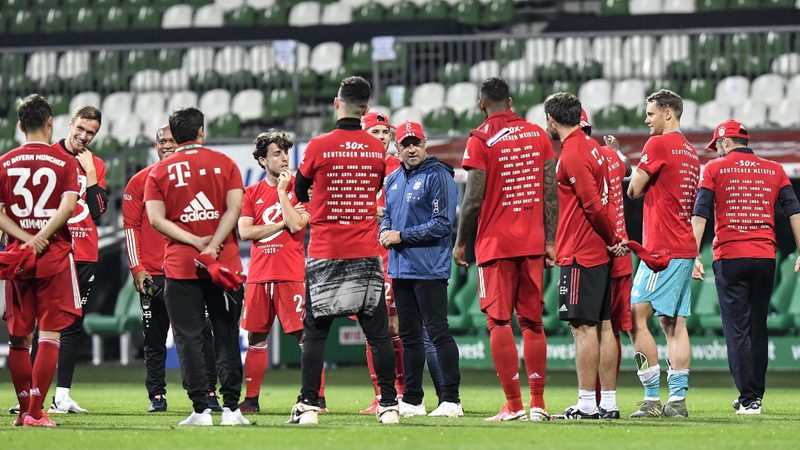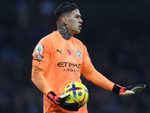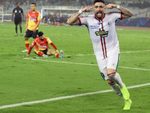
Bayern Munich have won the Bundesliga for the eighth consecutive year and are German champions for the 30th time in the club's proud history.
They have secured the German title 15 times since 2000 and, if they beat Leverkusen in the German Cup final on July 4, will have won the domestic double 12 times since the turn of the century.
We look at what makes the Bavarian giants so successful:
- The Uli Hoeness business model -
Through a clear ethos and transfer policy of cherry-picking Germany's best players alongside some foreign imports, Bayern have largely dominated the Bundesliga since the 1970s.
They last failed to win the league in 2012, when Jurgen Klopp led Dortmund to the second of back-to-back titles.
Bayern's revenue of 660 million euros ($741 million) placed them fourth in the latest Deloitte Football Money League, only behind Barcelona, Real Madrid and Manchester United.
Their financial might is the result of former president Uli Hoeness, who was at the helm for 40 years before stepping down in November.
Read | Three key players behind Bayern Munich's eighth straight Bundesliga title
Hoeness, who ran a successful sausage-making business, insisted on growth being financed solely by the club's revenues and no debt, and he was determined not to let majority investors take control.
"We have no patrons, only partners," Hoeness proudly proclaimed with Audi, Adidas and Allianz each holding an 8.33 percent share -- the remaining 75 percent is held by club supporters.
- Emblematic players -
Bayern recruit top names, but it is then down to the players to find their place in the club's "family" ethos.
Thomas Mueller, top-scorer Robert Lewandowski, on a career-best 31 league goals, Jerome Boateng and Manuel Neuer are pillars of the current team, just as Arjen Robben and Franck Ribery were before them.
Younger squad members like Alphonso Davies, Joshua Kimmich and Kingsley Coman are rapidly becoming future club stalwarts.
Bayern usually sign players in their youthful prime, but the club's history is littered with hugely-talented names, such as 2014 World Cup winners Lukas Podolski and Mario Gotze, who failed to hold down a first-team place.
Bayern have already been warned off Manchester City winger Leroy Sane, whom the club has reportedly agreed terms with.
"In terms of character, he doesn't suit Bayern," former centre-back Willy Sagnol told French radio station RMC, warning that Sane is someone he feels is "very inconsistent and very withdrawn".
- Mia san Mia -
The club's motto, translated from Bavarian, means "We are who we are" -- and unapologetically so.
It sums up the incredible self-confidence their supporters love and rival fans loathe.
"This club is special," says coach Hansi Flick, "and 'Mia san mia' is an asset when we're negotiating with players who are tempted to go elsewhere."
Few other clubs in the world have the same ruthless passion to win. Just like at Real Madrid, winning is the only acceptable result at Bayern. Tension quickly rises at their Saebener Strasse training ground after a rare heavy defeat.
Flick's predecessor Niko Kovac was fired after last November's 5-1 drubbing at Eintracht Frankfurt, while Carlo Ancelotti was sacked in 2017 after a similarly humbling 3-0 defeat at Paris Saint-Germain.
The unwritten rules is, you can lose occasionally, but never by a heavy margin. Moreover, Bayern are now expected to win with style.
"When I was a player at Bayern," said Flick, who made around 100 appearances as a midfielder in the 1980s, "only winning mattered, even if it was 1-0. Today, victory alone is no longer enough."
- Generation to generation -
As with most clubs, head coaches do not tend to last long. Flick is the eighth in the last decade, but there is far more stability at the top.
When injury ended his playing career prematurely, Hoeness, a three-time European Cup winner and 1974 World Cup champion with West Germany, became team manager and eventually spent 40 years in charge.
Alongside him, former Bayern striker and club idol Karl-Heinz Rummenigge, who twice played in World Cup finals with West Germany, has been chairman since 2002.
Rummenigge's designated successor is legendary goalkeeper Oliver Kahn, while sports director Hasan Salihamidzic is another former club stalwart.
Feature image courtesy: AFP / Martin Meissner







